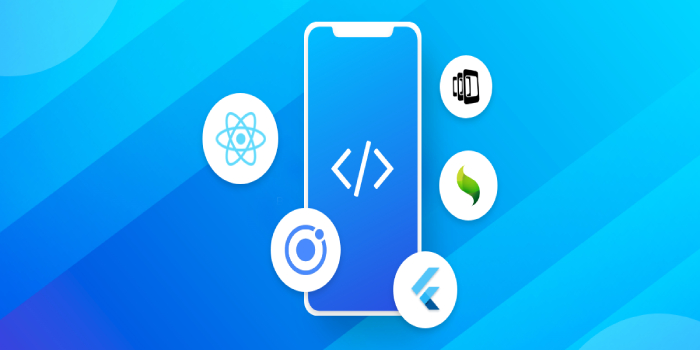Like most businesses, your goal is to reach as many people as you can. You are aware that a larger revenue base results from more users. You don’t want to start from scratch when creating native apps for every operating system, though. Separate apps typically cost more to make and take longer. In this case, a mobile cross platform development strategy may be useful.
When you only need to create two to three cross platform mobile app development services, the time to market is much shorter than when you need to create a native app specifically for each platform. This enables businesses, irrespective of the platform they use, to reach the target audience more quickly.
However, it’s crucial to understand all the benefits and drawbacks of developing cross platform mobile applications before creating a mobile solution for both platforms. Before diving into the discussion of the advantages you can obtain, let’s first examine the difficulties associated with this strategy.
5 Benefits of Opting for a Mobile Cross-Platform Development Strategy
Cross-platform development appears to be one of the best methods for producing mobile applications when time or money is limited but the quality is a concern. Naturally, these are only a few of the advantages that cross-platform development offers. So, let’s get to the main justifications for why businesses choose this method of developing mobile apps.
1. Array of Available Development Tools
The time is right for cross-platform application development. These applications can currently be developed with the aid of several technologies. Xamarin, React Native, Ionic, Titanium, PhoneGap/Cordova, and other programmes are examples of tools.
Each of these tools has its own benefits and drawbacks and requires a certain level of programming knowledge. Due to the fact that it will lock you into a specific tech stack, you should choose carefully.
2. Faster to App Store
These development tools help businesses market their mobile apps much more quickly. Developers can create custom apps using frameworks provided by tools like Ionic and React Native in a fraction of the time it would take to create apps specifically for each mobile OS. Cross-platform apps’ subsequent updates invariably show up quicker in the relevant app stores.
3. Simplified Process
Enterprise customers have access to this possibility thanks to our cross-platform mobile development services. These services provide a strategic starting point for any business looking to access multiple mobile platforms while overcoming time or money restrictions.
Employ a tried-and-true workflow that features a transparent channel of communication and an iterative development process with checkpoints. Please let us know how we can assist you, whether you need assistance with iOS or Android app development.
4. Look and Feel Across Platforms
60% of millennials anticipate consistent brand experiences across digital, physical locations, and mobile platforms. People by nature long for consistency. This rule applies equally to your mobile app. To guarantee your target market has a consistent experience, carefully monitor every aspect of your brand on all mobile platforms where you have mobile apps.
Cross-platform development frameworks also enable you to tailor the UI/UX of your apps to each platform’s requirements. UX expectations vary between users of Apple and Android devices. Therefore, it would be wise to make some adjustments to your cross-platform developed apps if the budget permits so that they appear and behave naturally on iOS and Android.
5. Reach a Wider Audience
With more than 3.48 million apps available in the Google Play Store, Android is the most popular mobile OS. With 2.22 million apps, the Apple App Store is not far behind, and the Microsoft Store is far behind with 670K apps.
These are the primary places to deposit mobile apps. But this excludes Facebook, Amazon, and other app stores. Each store has a sizable marketing apparatus available to assist you in reaching its patrons. The secret is to give your mobile app enough value to contact a mobile app development company for accomplishing app development projects.
Wrapping Up
There are many difficulties involved in publishing your mobile app on various platforms. To reach a larger audience, you can, however, hire mobile app developers to optimize your mobile app development strategy by using a mobile cross-platform development approach.

